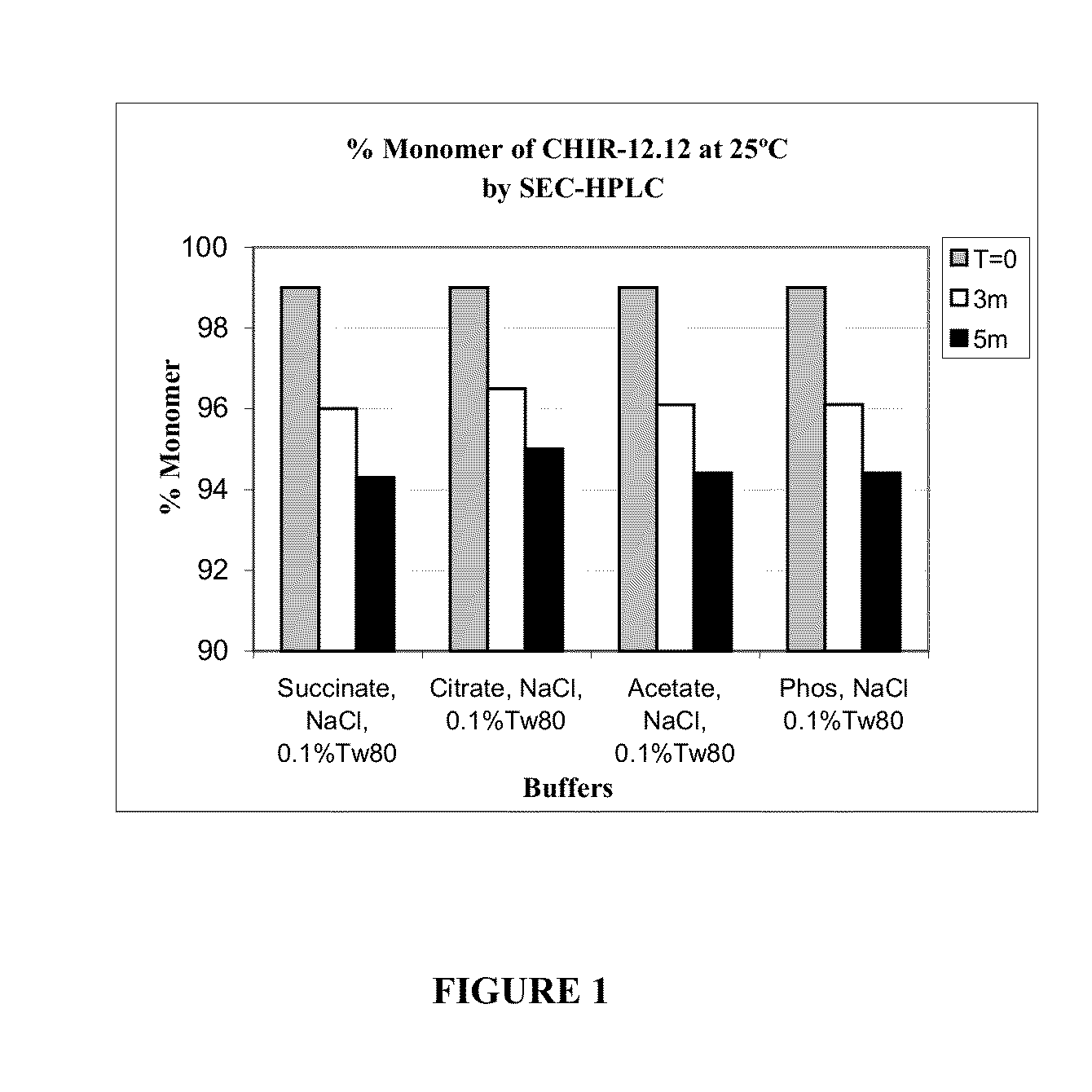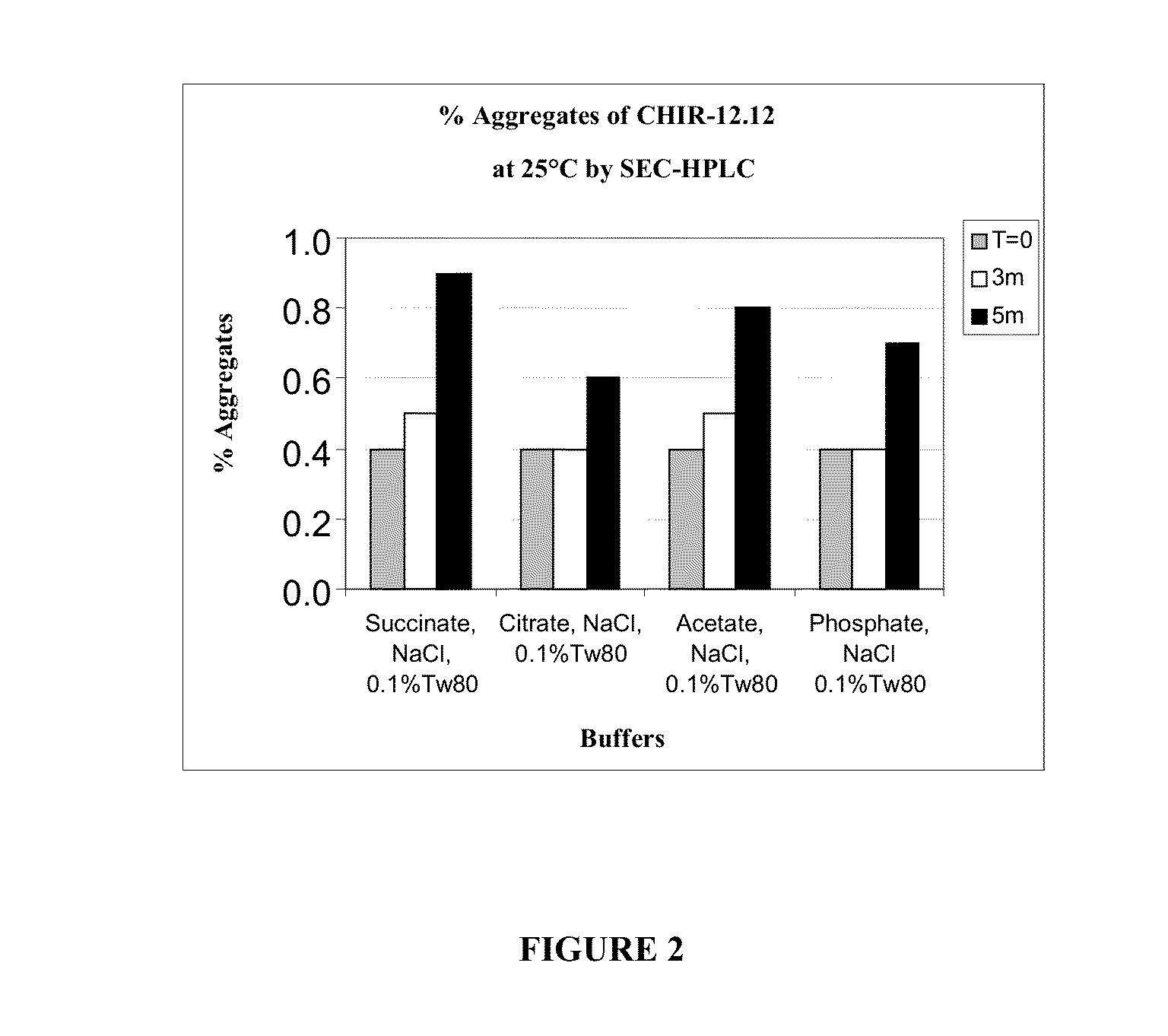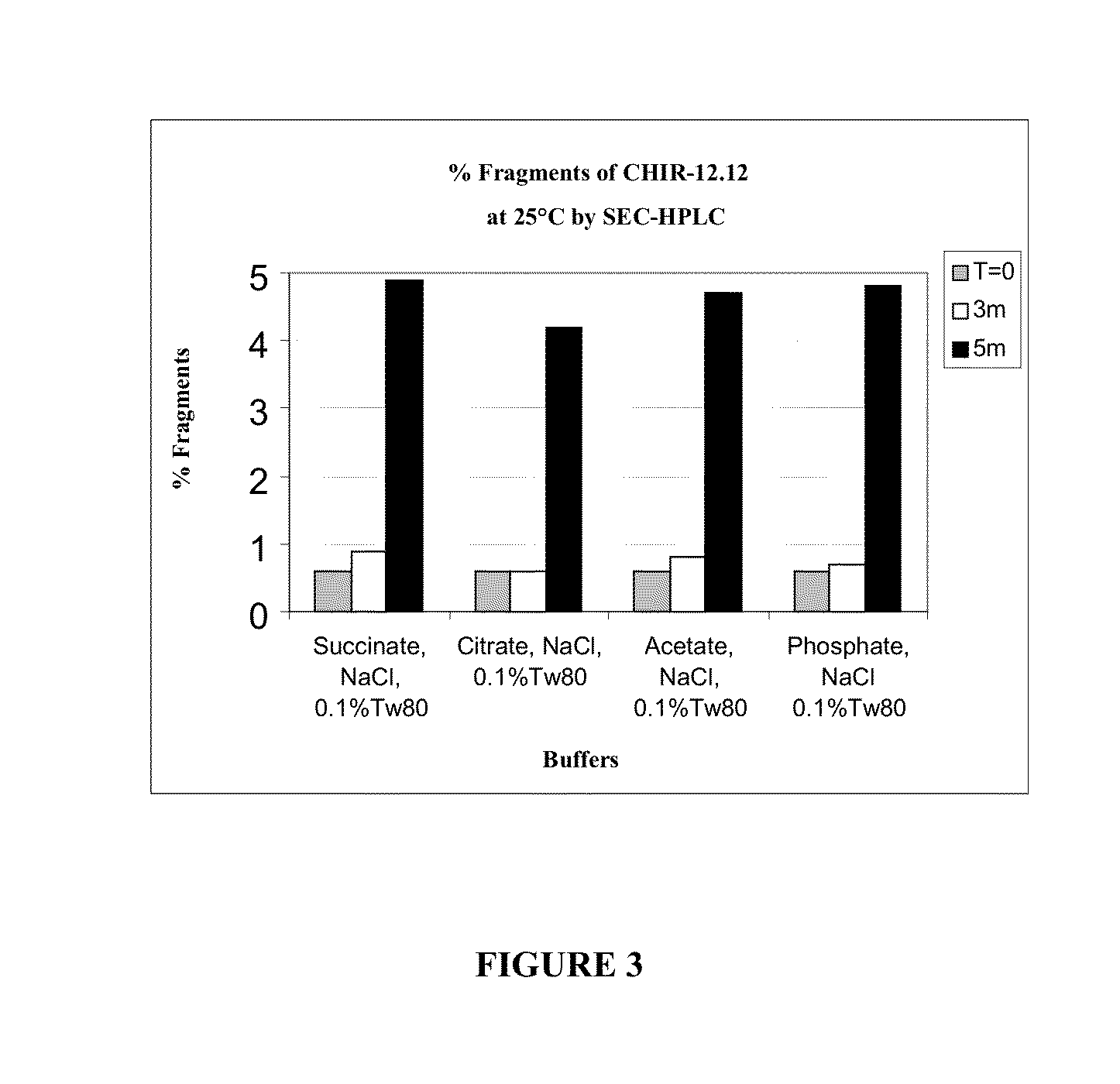Antagonist Anti-cd40 antibody pharmaceutical compositions
an anti-cd40 and anti-cd40 technology, applied in the field of pharmaceutical formulations, can solve the problems of inconvenient reconstitution of polypeptides, loss of biological activity of polypeptides, and inability to manufacture antibodies,
- Summary
- Abstract
- Description
- Claims
- Application Information
AI Technical Summary
Benefits of technology
Problems solved by technology
Method used
Image
Examples
example 1
Effect of Various Buffer Species and Methionine on Stabilization of CHIR-12.12
[0178]Solution conditions (e.g., pH, buffer species, and ionic strength) and excipients (e.g., surfactants and stabilizers) are critical factors for stability of a protein in liquid formulation. Physicochemical stability of CHIR-12.12 is optimal at pH 5.5. However, CHIR-12.12 protein can degrade via aggregation and fragmentation under unfavorable solution conditions; it can also oxidize, especially in the presence of peroxide impurities and / or trace amounts of metals introduced with raw excipient materials such as Tween. The following experiments were conducted to identify the best buffer species and appropriate excipients to stabilize CHIR-12.12 monoclonal antibody against aggregation, fragmentation, and oxidation when formulated at the optimum pH 5.5.
Materials
[0179]The CHIR-12.12 drug substance (DS) lots for the study were CHO-derived purified bulk lot #CD021105A and lot #PD010705A. The DS lots were prod...
example 2
Stabilizing Effect of Arginine-HCl on CHIR-12.12
[0189]The following study was aimed at selecting a tonicifying agent and stabilizer for long-term storage stability of CHIR-12.12 formulated as a liquid pharmaceutical composition intended for administration via intravenous infusion. Although NaCl is the most commonly used isotonizing agent for protein parenteral products, it may not have optimal stabilizing effects on antibody therapeutics. This study reports on the comparative stabilizing effects of sodium chloride and the acidic form of arginine (arginine-HCl) on CHIR-12.12 in an aqueous formuation.
[0190]The CHIR-12.12 bulk antibody drug substance was formulated with a citrate buffer at pH 5.5, employing either 150 mM NaCl or 150 mM L-arginine-HCl to achieve the target osmolality of 295 mOsm / kg for the CHIR-12.12 liquid formulation. Differential Scanning calorimetry (DSC), size-exclusion chromatograph (SEC-HPLC), SDS-PAGE, and Cation-Exchange HPLC (CIEX-HPLC) were used to evaluate b...
example 3
Effects of Tween 80 and Tween 20 in Minimizing Aggregation of CHIR-12.12 Bulk Drug Substance from Frozen Storage
[0211]Frozen storage of the CHIR-12.12 bulk drug substance is preferred over liquid storage for several reasons including increased product stability and shelf life, decreased microbial growth, as well as elimination of foaming during transport. However, freezing and subsequent thawing can induce stresses in protein solution by introducing ice-liquid interfaces and concentration gradient of solutes. The stresses may denature proteins and lead to aggregation and, in worse cases, formation of visible particulates or precipitates. As protein aggregates have been frequently associated with reduced drug potency and increased immunogenicity, minimizing aggregation by optimizing protein formulation components and freeze-thaw conditions is very critical.
[0212]Formulation excipients, such as sugars, polyhydric alcohols, amino acids, and surfactants can possibly stabilize proteins a...
PUM
 Login to View More
Login to View More Abstract
Description
Claims
Application Information
 Login to View More
Login to View More - R&D
- Intellectual Property
- Life Sciences
- Materials
- Tech Scout
- Unparalleled Data Quality
- Higher Quality Content
- 60% Fewer Hallucinations
Browse by: Latest US Patents, China's latest patents, Technical Efficacy Thesaurus, Application Domain, Technology Topic, Popular Technical Reports.
© 2025 PatSnap. All rights reserved.Legal|Privacy policy|Modern Slavery Act Transparency Statement|Sitemap|About US| Contact US: help@patsnap.com



